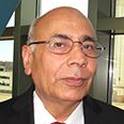Background: Weight loss after bariatric surgery in obese patients reduces adverse cardiovascular (CV) outcomes; however, it is not known if similar benefits are maintained in patients with and without obstructive sleep apnea (OSA). We investigated whether weight loss after laparoscopic adjustable gastric banding (LAGB) results in similar CV event rates in patients with and without OSA.
Methods: Differences in LAGB-induced weight loss on CV outcomes (myocardial infarction, heart failure, stroke, atrial fibrillation [AF] and pulmonary embolism) in those with OSA and matched non-OSA patients were determined by Kaplan-Meier and Cox regression analysis and predictors of CV events identified.
Results:Out of 828 obese patients [body mass index (BMI) ≥35 kg/m2] who underwent LAGB and were followed for 11 years, OSA was present in 217 (26%).The mean age was 44±11 years, mean BMI 49±8 kg/m2 and median follow-up 63.6 months; the mean reduction in BMI was 10 kg/m2 at 3 years. Patients with no history of OSA had minimal CV events compared to those with OSA (Fig A and B, at 5 years 1% vs 22%, p
Conclusions: Patients with OSA, despite weight loss after LABG, continued to have higher CV events, particularly heart failure and AF. Further investigation is warranted into whether compliance with OSA treatment helps reduce CV events.
Dalmar A, Singh M, Heis Z, Katzoff MN, Chua T, Tajik AJ, Jahangir A. The Risk Of Adverse Cardiovascular Outcomes After Bariatric Surgery In Patients With Morbid Obesity With And Without Obstructive Sleep Apnea. Journal of the American College of Cardiology. 2016; 67(13_S):1885-1885.

Aurora Research Institute